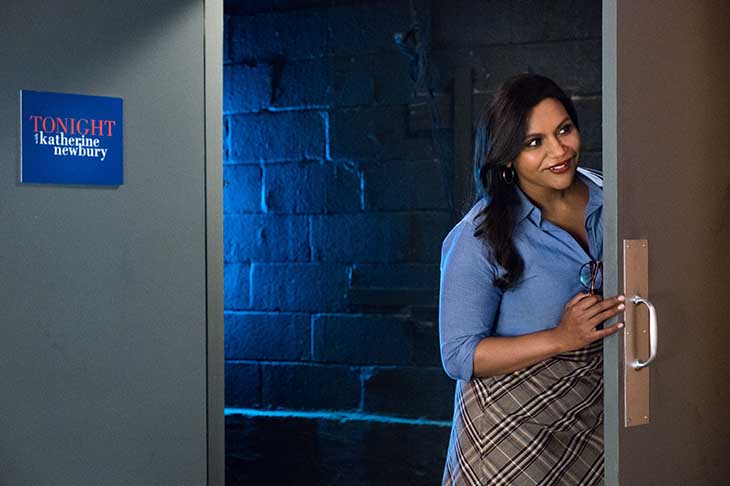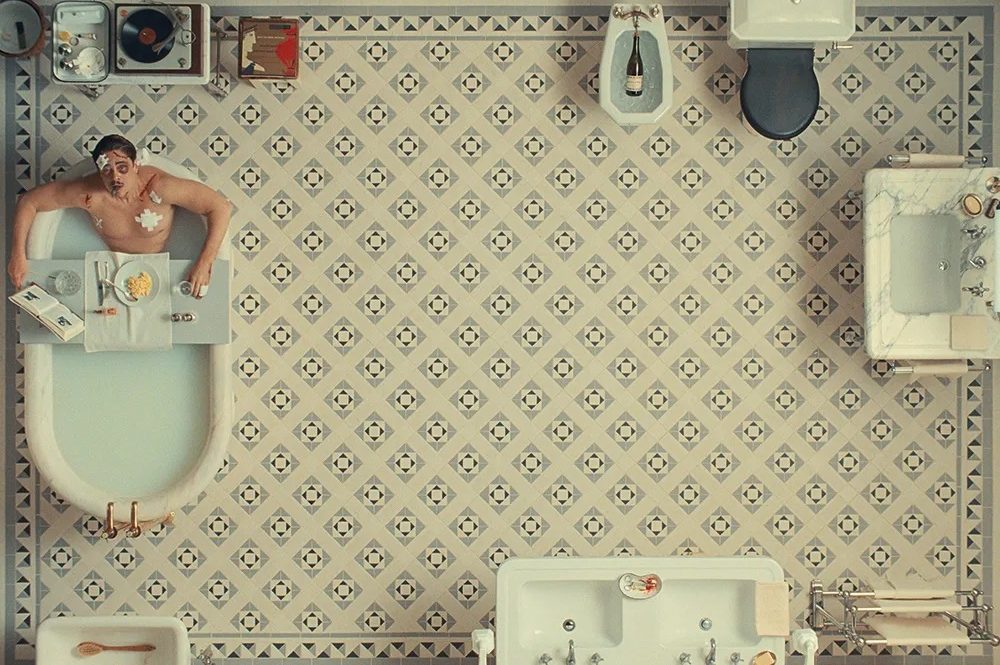Late Night
is a comedy starring Emma Thompson as a talk-show host in America whose ratings are in decline and who hires her first female writer. This is Molly, who is welcomed by the bank of male writers, not. They initially mistake her for someone who has come to take their food orders and greet her with: ‘I’ll have the soup.’ So it’s that. And then it’s quite a lot more of that, one way or another. And, you know, good. A woman-centered comedy that satirizes the white male stronghold on comedy? Count me in! And it does have its terrific moments, plus Thompson is absolutely superb, and clearly having a ball.
Directed by Nisha Ganatra, the film is written by Mindy Kaling, who was the only female writer on the American version of The Office, so she knows of what she speaks, and she also stars as Molly. Molly works in a chemical plant but is desperate to break into comedy and through convoluted plot shenanigans that would suffer more in the retelling than they even did in the watching, she ends up working for Katherine Newbury (Thompson — Kaling wrote this part specifically for her). Newbury has been a titan of television for the past decade but her audience has fallen off a cliff and the new boss of the network (Amy Ryan) wants to replace her with a young male dude. Newbury has short-cropped hair and a fabulous wardrobe of mannish clothes and veers away from jokes about abortion or menopause. The suggestion is that she has lost touch with herself as a woman, and who she really is. Will Molly put her back in touch? Seriously, you have to ask? Although we mustn’t hold that against it. You would, if it weren’t funny enough, but generally it is.
Newbury’s writers’ room is staffed entirely by white men, and at the first writers’ meeting, where Molly is asked for the soup, there is no seat for her, so she has to sit on an upturned trash can and then proceeds to do that female apologetic thing: ‘It’s more comfortable than a chair!’ (I laughed.) And she is not just a woman; she’s also a brown woman. ‘I wish I was a woman of color so I could get any job,’ hisses one of the writers. ‘We’ve talked about this. You can’t say that,’ hisses one of the others, sadly. Poor fellas. You really feel for them…not.
Look, some of the jokes don’t quite land, the turnaround of the talk show is rather lame, and there is a subplot to do with Newbury’s marriage that doesn’t quite come off. Still, her husband is played by a scene-stealing John Lithgow, whose character is a professor emeritus somewhere or other but, as he explains to Molly, ‘Emeritus’ isn’t that big a deal. ‘It’s what happens when you’re not dead yet but they don’t want you to come in.’ (I laughed.) There are plenty of cracking lines, in fact, as when Newbury is told to smile for the press: ‘Katherine, use the same fake smile you used when you lost the Emmy to John Oliver.’
So the meat is strong, and Thompson is to this film what Meryl Streep was to The Devil Wears Prada. Her character can be fabulously cruel, but is never one-dimensional, as Thompson brings real heft. At one point she says, desperately: ‘They’re taking my show away and I don’t know what to do. I’m a woman in Hollywood in her fifties, what am I going to do?’ And you properly feel it. So, while this isn’t flawless, it is a start, and it has verve and energy and pathos and quite a few white, entitled men running scared. More, please.
This article was originally published in The Spectator magazine.

























